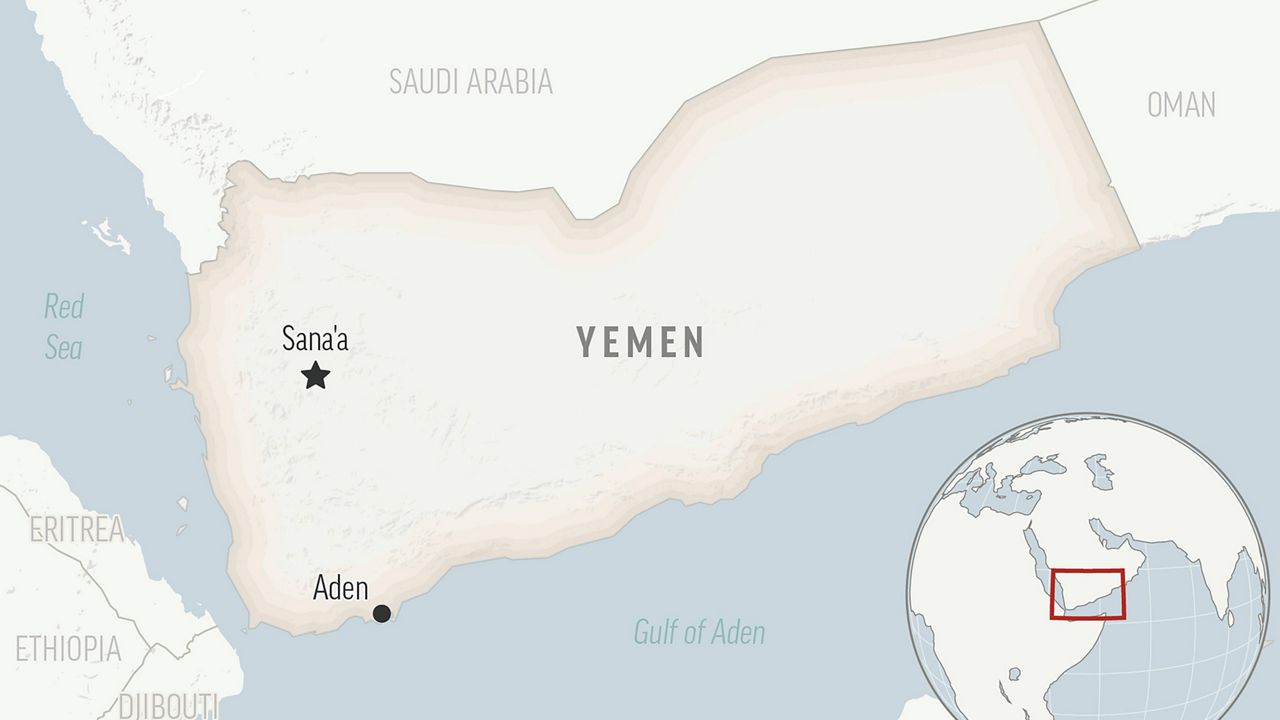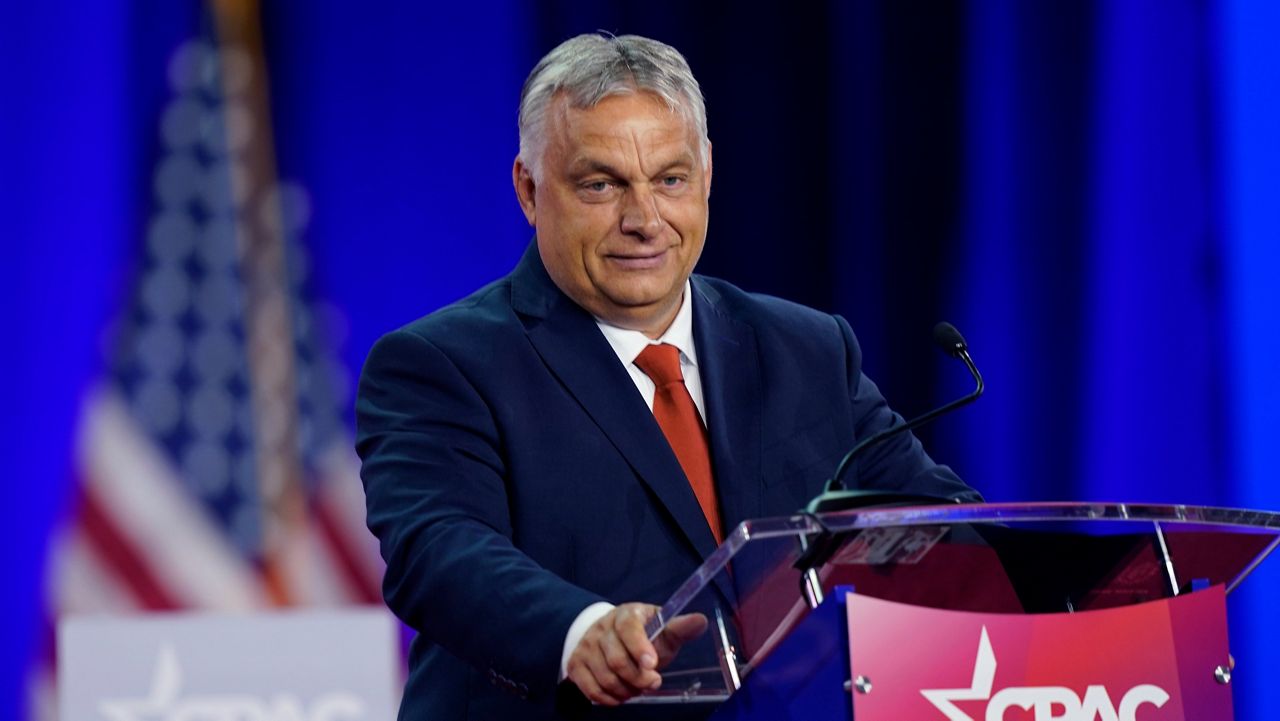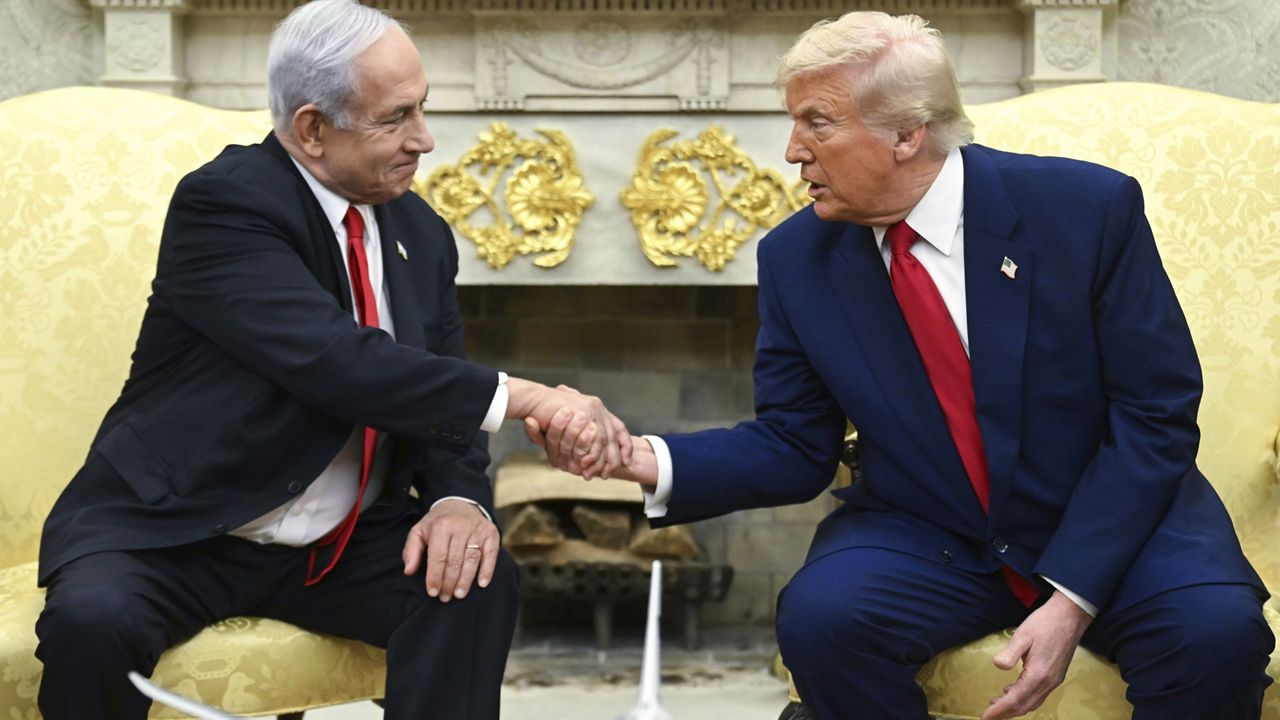In an Oval Office address to the nation one day after the shooting at Donald Trump's rally that left one attendee killed and saw the former president injured, President Joe Biden condemned political violence and stressed the need to "lower the temperature in our politics".
"In America, we resolve our differences at the ballot box," Biden said in his prime time remarks. "Not with bullets. The power to change America should should always rest in the hands of the people, not in the hands of a would-be assassin."
Biden began his roughly six-minute address by saying that Saturday's shooting "calls on all of us to take a step back" and figure out how to move forward as a country.
"Remember, while we may disagree, we are not enemies," Biden said. "We're neighbors, we're friends, coworkers, citizens, most importantly we are fellow Americans. We must stand together."
The president said he was thankful that Trump was not seriously injured before expressing his condolences to the family of Corey Comperatore, who was killed in Saturday's shooting. Biden called Comperatore a "hero, sheltering his family from those bullets" and called for all Americans to "hold his family and all those injured in our prayers."
Biden also detailed his conversation with Trump on Saturday: "I am sincerely grateful that he’s doing well, and recovering. We had a short but good conversation. Jill and I are keeping him and his family in our prayers."
He reiterated his comments from earlier in the day, namely that several key facts about the attack are still unknown, including the suspected shooter's motive.
"Tonight, I want to speak to what we do know: A former president was shot. An American citizen killed while simply exercising his freedom to support the candidate of his choosing," Biden said. "We cannot, we must not go down this road in America.”
Biden cited a number of recent instances of political violence in his plea for a cooling of temperatures, including the Jan. 6, 2021, insurrection at the U.S. Capitol, the attack on former House Speaker Nancy Pelosi's husband Paul in 2022, and the attempted kidnapping of Michigan Gov. Gretchen Whitmer.
"There's no place in America for this kind of violence, for any violence ever," Biden said. "Period. No exceptions. We can't allow this violence to be normalized."
"The political rhetoric in this country has gotten very heated," the president continued. "It's time to cool it down. We all have a responsibility to do that."
Biden, who has often highlights the stakes in November's election, made that point once agian Sunday night, but also emphasized the importance of Americans disagreeing.
"Disagreement is inevitable, it's part of human nature," he said. Politics must never be a literal battlefield, God forbid a killing field. I believe politics ought to be an arena for peaceful debate, to pursue justice, to make decisions guided by the Declaration of Independence and our Constitution. We stand for an America not of extremism and fury, but of decency and grace."
"All of us now face a time of testing as the election approaches," Biden continued. "The higher the stakes, the more fervent and passionate we become. This places an added burden on each of us to ensure that no matter how strong our convictions, we must never descend into violence."
Biden mentioned that the Republican National Convention, which kicks off on Monday in Milwaukee, will "no doubt" feature speakers criticizing his record as president, while he will return to the campaign trail to make his own case for a second term, which will include standing up for American democracy and emphasizing the need for a peaceful election without violence.
"That's how our democracy should work," Biden said. "We debate and disagree and compare and contrast the character of the candidates, the records, the issues and the agenda, the vision for America. In America, we resolve our differences at the ballot box, that's how we do it, at the ballot box, not with bullets."
The president asked every American "to recommit" to the principles that "made America so special."
"Here in America, everyone should be treated with dignity, respect, and hate must have no safe harbor," Biden said.
Biden also called for Americans to "get out of our silos, where we only listen to those with whom we agree, where misinformation is rampant, and foreign actors fan the flames of our division to shape the outcome consistent with their interests not ours."
"Here in America, while unity is the most elusive of goals right now, nothing is more important for us now, and standing together," Biden said. "We can do this."
Invoking the founders of the country, who Biden said "created a democracy that gave reason and baalance a chance to prevail over brute force," the president said that "we must" live up to the ideals that make the country what it is: a democracy where arguments are made in good faith, where the rule of law is respected, and fair play is a guiding principle.
"We owe that to those that came before us," Biden said. "Those who gave their life in this country. We owe that to ourselves. We owe it to our children and our grandchildren. Let's never lose sights of who we are. Let's remember, we are the United States of America. There is nothing, nothing, nothing beyond our capacity."
And he ended on a challenge to his fellow Americans: "Why don't we do it together?"








